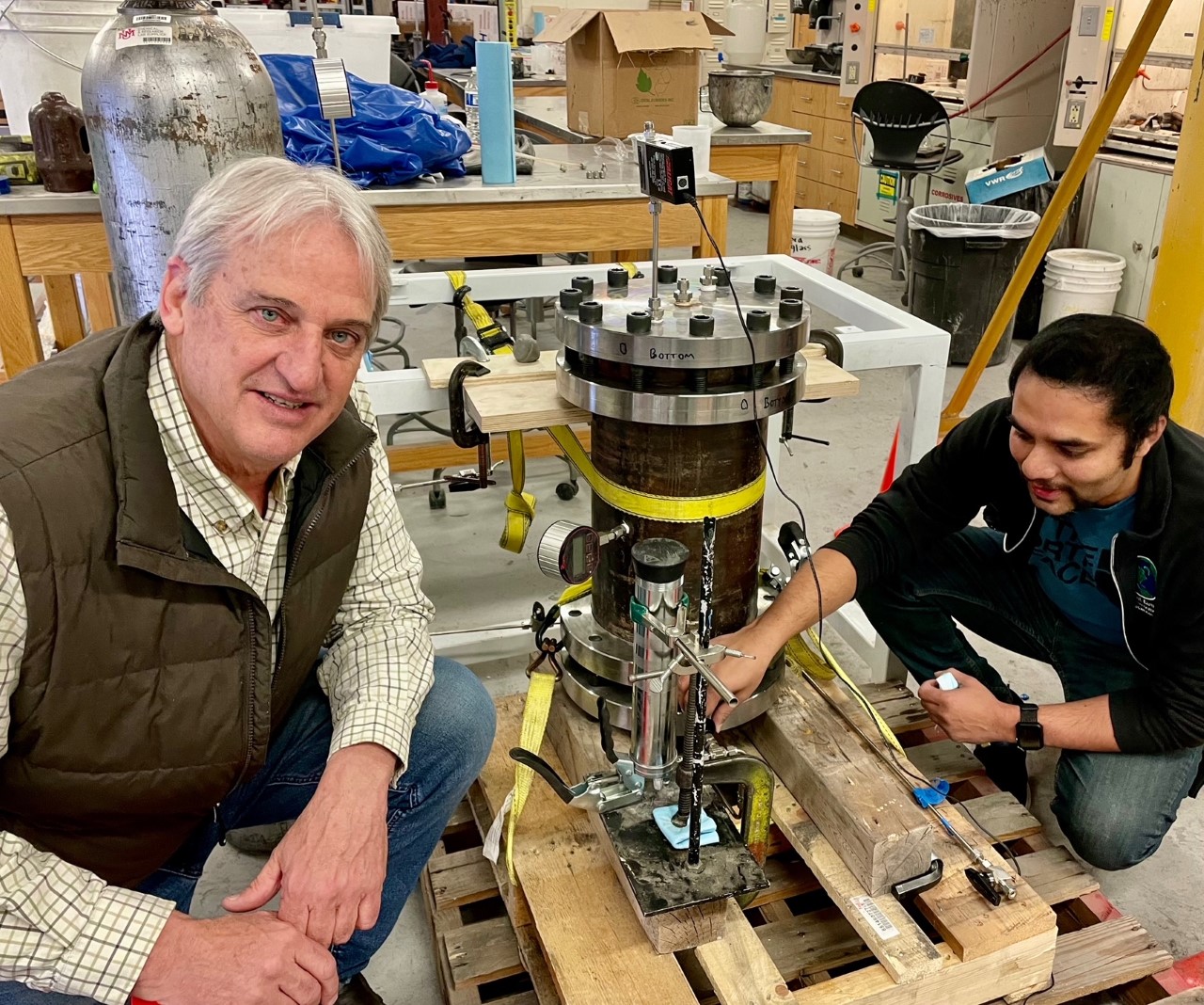Recent News
UNM places first at solar boating championship
June 10, 2025
New Electrical and Computer Engineering chair joins UNM from Penn State
June 9, 2025
Study shows protected bike lanes increase bicycle commuting
June 6, 2025
SoE’s Research Support Office is now open
June 5, 2025
News Archives
UNM group develops low-cost, steady-state pump with NSF I-Corps funds
April 18, 2022 - by Kim Delker

Professor John Stormont (left) and Ishtiaque Anwar are shown in the geomechanics lab with the new steady-state pump.
A research group in the UNM Department of Civil, Construction and Environmental Engineering has developed a cost-effective, steady-state flow pump that has a wide range of uses in chemical feed and core flooding applications.
The patent-pending project, “SHP Pump – a low-cost, rugged, high-pressure inexpensive steady-state flow pump,” led by graduate student Ishtiaque Anwar received National Science Foundation (NSF) Innovation Corps (I-Corps) funding for the further development and marketing. It was accepted into the spring 2022 I-Corps program, and the team receives $3,000.
The pump was developed in the geomechanics lab of John Stormont, Anwar’s advisor.
Anwar said pumps are required to create a steady-state flow in a wide range of chemical feed and core flooding applications. There are several repair projects that require a high-pressure repair material injection pump, but after handling the corrosive, chemically-active substance, the pumps are often salvaged. Currently, the pumps to create steady-state fluid flow are extremely expensive, and therefore it is not feasible to use the pumps for such projects.
Instead, the UNM team has filled a void for sacrificial pump system that will be able to handle relatively high pressure. It is low-cost and rugged high-pressure pump system that can be used as a sacrificial pump. The pump system contains a barrel and a control assembly, and in some instances, the new pump system can be repaired, instead of replacing the whole unit. The system is capable of creating continuous steady-state flow at a pressure of a maximum of 3000 psi. In addition, this system will be able to inject a variety of liquids such as colloidal substances containing tacky dispersed particles, without blocking the pump over time due to micelle formation from the solution.
